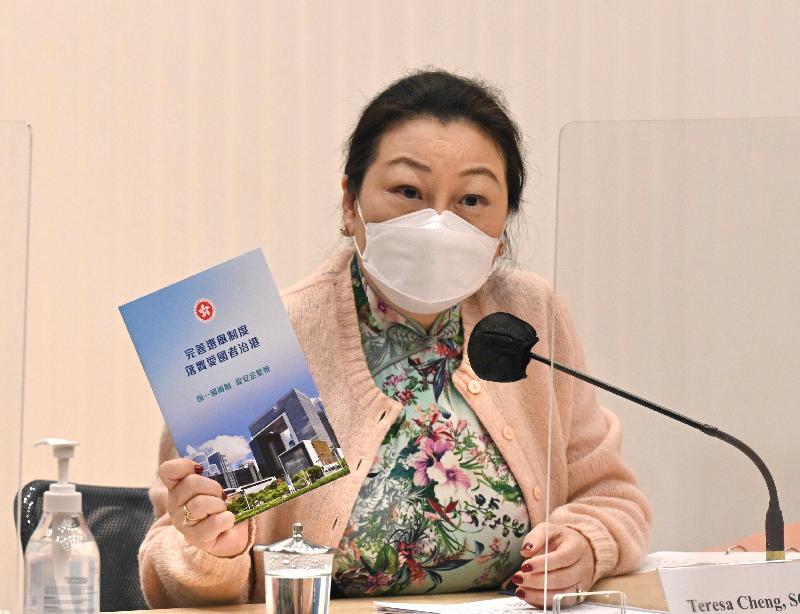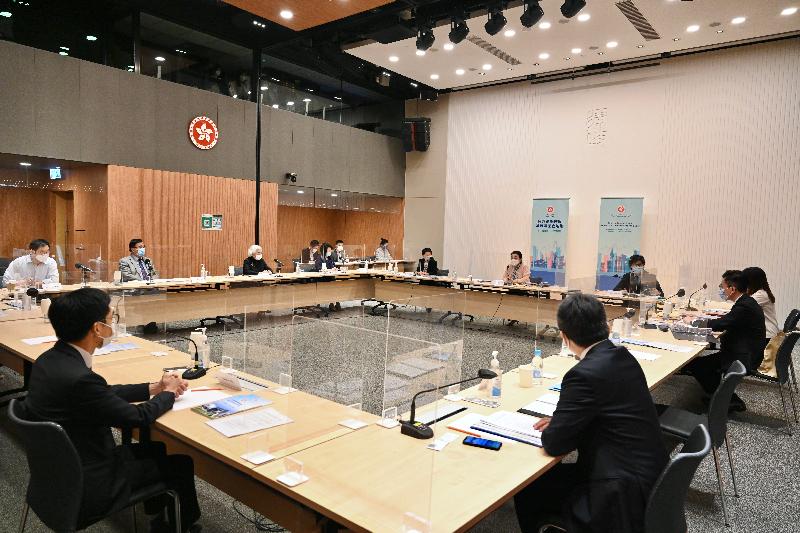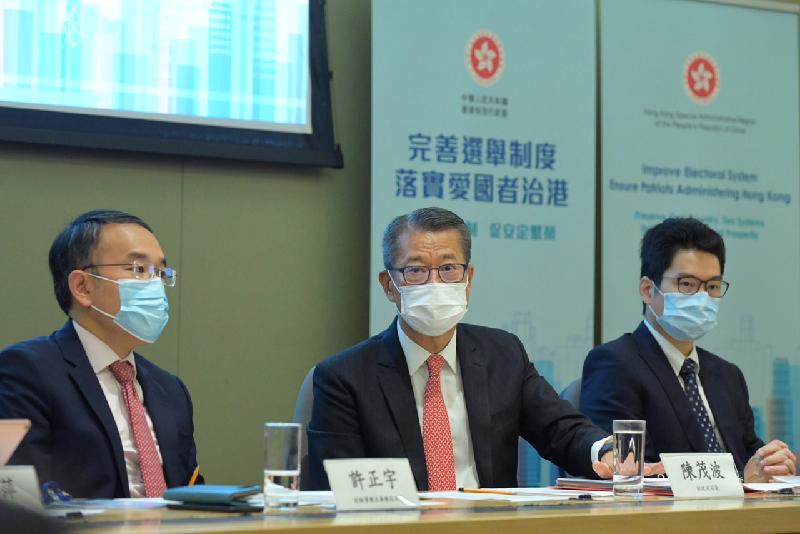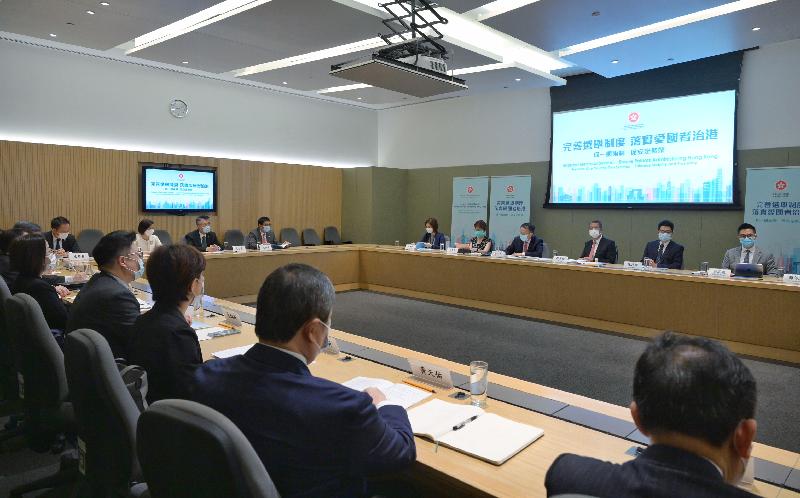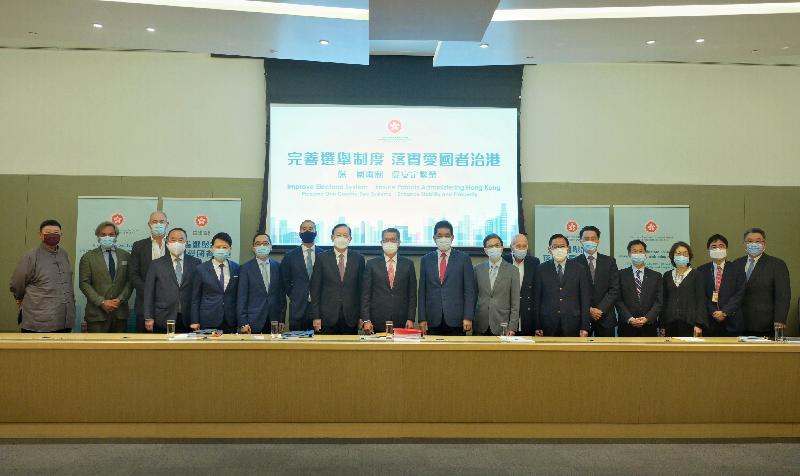Government announces arrangements for designated flights from United Kingdom to Hong Kong and quarantine arrangements for arrivals from low-risk places
The Government announced today (April 1) the arrangements for designated flights from the United Kingdom (UK) to Hong Kong and the latest quarantine arrangements for arrivals from overseas low-risk specified places.
Designated flights from the UK to Hong Kong
————————————————–
Due to the severe global epidemic situation of COVID-19, and to guard against the importation of new virus variants, the Government has put in place since late December last year the measure under the Prevention and Control of Disease (Regulation of Cross-boundary Conveyances and Travellers) Regulation (Cap. 599H) to restrict persons who had stayed in extremely high-risk Group A specified places from boarding flights for Hong Kong. In view of the decline of confirmed cases in the UK, where the majority of the affected Hong Kong residents are situated, as well as the satisfactory vaccination progress there, there is room to gradually lift the relevant boarding restriction.
A Government spokesman said, “To ensure the orderly return of the relevant Hong Kong residents, and reduce the infection risks of a large group of travellers arriving at Hong Kong at the same time, the Government will specify that passengers of designated flights will not be subject to the restriction on boarding for Hong Kong and will arrange for these returnees to undergo the 21-day compulsory quarantine in a specified quarantine facility.”
The designated flights will depart from London. Hong Kong residents who have stayed in any Group A specified place on the day of boarding or the 21 days before that day can board for direct return to Hong Kong.
Travellers arriving on the designated flights will all be required to undergo compulsory quarantine at the centrally managed specified quarantine facility (Rambler Garden Hotel in Tsing Yi) for 21 days so as to properly reduce the infection risks. The relevant persons under quarantine will be tested again on the seventh, 12th and 19th days during quarantine. Passengers of the designated flights must stay in the specified quarantine facility (Rambler Garden Hotel in Tsing Yi) to undergo compulsory quarantine, and cannot stay at hotels under the Designated Quarantine Hotel Scheme.
The designated flights will be the CX2252 flights departing London in the UK on April 21 and April 28 at 9.10am. The airline will open the ticketing reservation system on April 8, and travellers who have successfully booked tickets will be redirected to the reservation system of the specified quarantine facility to book their rooms. The room rate per night will be $400 to $500.
Upon check-in for the designated flights, travellers will be required to present negative result proof of a reverse transcription polymerase chain reaction (RT-PCR) nucleic acid test for COVID-19, conducted within 72 hours before the scheduled time of departure of the aircraft. Results of tests conducted using other techniques will not be accepted. In addition, the travellers must present the confirmation of their room reservation in the specified quarantine facility mentioned above for 21 nights after their arrival in Hong Kong.
The spokesman reiterated, “The boarding restriction currently applicable to Group A specified places is still in force. Any person who has stayed in Group A specified places (including the UK) for more than two hours on the day of boarding or during the 21 days before that day are not allowed to board for Hong Kong, unless they are boarding for a designated flight.”
The Government will closely monitor the reservation situation of the designated flights and the specified quarantine facility, and discuss with the airline on arranging additional flights if necessary.
Quarantine arrangements for persons arriving from low-risk places
————————————————————————-
Meanwhile, the global epidemic situation remains severe with new virus variants ravaging many parts of the world. As such, the Government needs to maintain the 21-day compulsory quarantine requirement for most places outside China, especially for persons who have stayed in high-risk places.
However, considering that the epidemic situations in certain places have stabilised and pose lower public health risks, the Government will adjust the quarantine arrangements for persons who have stayed in low-risk overseas places under the Compulsory Quarantine of Certain Persons Arriving at Hong Kong Regulation (Cap. 599C), the Compulsory Quarantine of Persons Arriving at Hong Kong from Foreign Places Regulation (Cap. 599E) and Cap. 599H, and allow the relevant non-Hong Kong residents to enter Hong Kong.
The compulsory quarantine period for persons arriving at Hong Kong on or after April 9, and who have only stayed in Australia, New Zealand or Singapore on the day of arrival in Hong Kong or during the 21 days before that day, will be shortened to 14 days, while they will be required to self-monitor for the subsequent seven days and be subject compulsory testing on the 19th day after their arrival at Hong Kong. The relevant persons will still be required to undergo compulsory quarantine in designated quarantine hotels. This arrangement will be applicable to both Hong Kong residents and non-Hong Kong residents.
In view of the roll-out of vaccination programmes in many places, the Government is also considering adjustments to the compulsory quarantine requirements for persons who have stayed in other non-high-risk places upon their arrival at Hong Kong. If the relevant persons have completed vaccination, their existing 21-day compulsory quarantine period may be shortened, while they would still have to self-monitor for a certain period and be subject to additional compulsory testing. Persons who have not yet been vaccinated would still be subject to 21-day compulsory quarantine in designated quarantine hotels. The Government will announce the implementation date and relevant details of this measure in due course.
The spokesman said, “The appropriate adjustments to the entry restrictions and quarantine arrangements will be conducive to the gradual resumption of travel between Hong Kong and other overseas places. In the meantime, we will continue various measures to stringently guard against the importation of cases.”
To facilitate the public’s understanding of the latest boarding and compulsory quarantine requirements under the relevant regulations for persons who have stayed in different places outside China, the Government will add Group D specified places (i.e. Australia, New Zealand and Singapore) to the existing grouping of overseas places. The details are set out in the Annex.
Except for the arrangements for the designated flights departing from the UK, and the newly added Group D specified places, the existing requirements applicable to the other groups of specified places remain unchanged.
“The Government will continue to closely monitor the situation, including the developments of the epidemic both globally and locally, vaccination progress, and changes in the volume of cross-boundary passenger traffic, and will adjust the boarding and compulsory quarantine requirements for persons arriving at Hong Kong from places with different risks when necessary.”
Details on the grouping of specified places and their respective boarding and compulsory quarantine requirements can be found at www.coronavirus.gov.hk/eng/high-risk-places.html. read more


